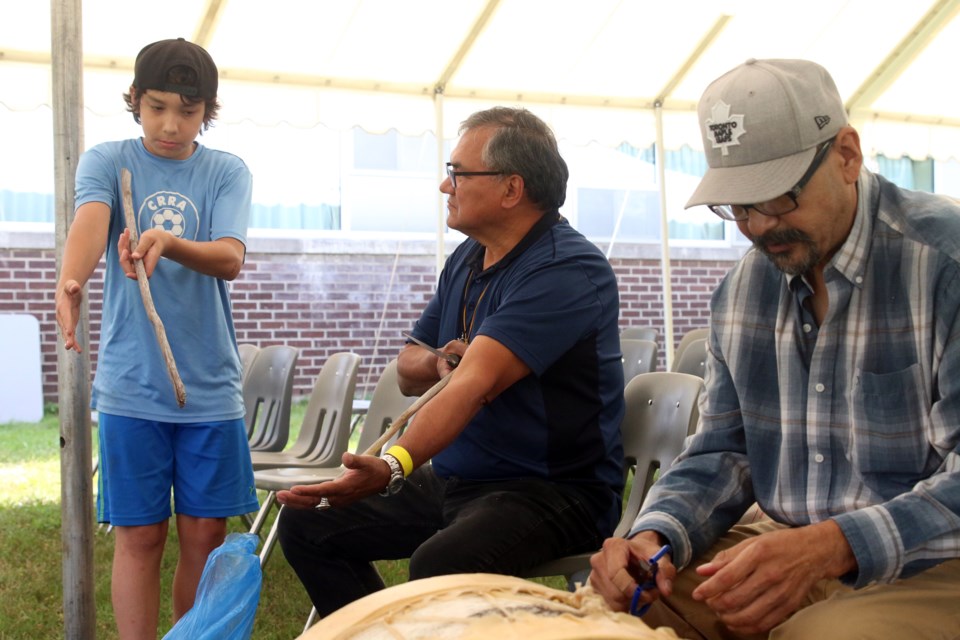THUNDER BAY - Most students leave a classroom with new knowledge or skills. But for Starr Moonias, at the end of the day, she takes with her so much more.
“I leave here with hope, courage, and strength,” 15-year-old Moonias said. “Every time I come here I feel like a whole new person.”
Moonias is one of 35 Indigenous youth participating in Mino Bimaadiziwin, Leading a Good Life, a week-long Aboriginal youth leadership program for grade 7 to 9 students attending Lakehead Public Schools.
The program began last Sunday and students stay at Lakehead University while attending classes and workshops on traditional teachings and life skills.
“It’s really about connecting students with the strength that comes from knowing our culture, practicing our ceremonies, and building that community with each other,” said Anika Guthrie, Indigenous education resource teacher with Lakehead Public Schools.
“We have sacred circles, ceremonies that teaches them where we can get our strength from,” Gurthrie continued. “It connects them community members who can support them.”
Mino Bimaadiziwin is in its third year and was modelled after the Ontario Provincial Police Youth Camp, Niigan Mosewak in North Bay, Ont. The program in Thunder Bay partners with the Thunder Bay Indigenous Friendship Centre, Thunder Bay Police Service, and Lakehead University.
A second week of workshops will also be held next week at Hammarskjold High School for students entering grade 9, which will allow them to earn a high school credit.
For the youth participating, learning about their culture and the traditional teachings of the seven grandfathers, not only helps them grow as individuals, but can also be a lot of fun.
“It’s really fun because you can meet new people and I don’t want to go all the way to a reserve to learn more about my culture, you can go here and you will learn a lot of stuff,” said 14-year-old Claudia Kataquapit.
Kataquapit added that during the week she has learned about Indigenous culture and history, including residential schools.
“We were deprived because of residential schools,” she said. “As the next generation, we don’t have much experience and they say we have it easier, but not really. When the residential schools closed, the communities were tore up and nothing was the same, so now with stuff like this you can bring it back together in an easy way and its fun too.”
Youth are also taught important life skills and learn about drugs, alcohol, and addiction, lessons that can help change lives.
“I do have my problems and coming here and seeing everybody and doing the ceremonies and talking to people, it feels like I finally have that person I can always talk to and relieve all my problems,” Moonias said. “When we are all together, it’s like one big happy family. Everyone cares about everyone. Even if we haven’t see each other for the whole year, every time we get together, we are really close.”
“I think we want them to leave here knowing that there are people that are here for them,” Guthrie added.
“We also want to give them the tools that they need to take care of themselves. That their spiritual health, their physical health, their mental health, their emotional health is cared for and that they know how to take care of that themselves and who to reach out to if they need support.”
